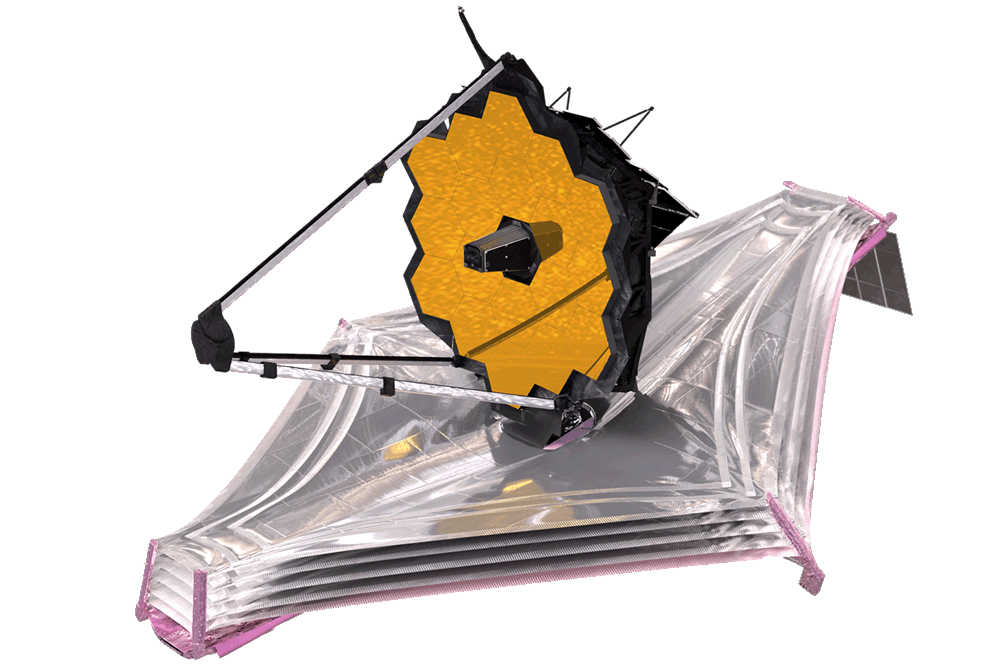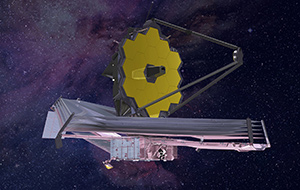Motivation
This JWST Training School is organized by the
COST Action NanoSpace (CA21126)
in collaboration with the
Instituto de Astrofísica de Canarias (IAC)
and
James Webb Space Telescope (JWST)
experts from ESA, NASA,
Centro de Astrobiología (CAB)
, and Oxford University. The
COST Action NanoSpace (CA21126)
brings together researchers and innvotators from 47 countries and several industrial partners.
NanoSpace
proposes a highly interdisciplinary approach in order to understand the physics and chemistry of carbon molecular nanostructures in space, taking advantage of the recent successful operation of the
James Webb Space Telescope (JWST)
, the new facilities that can better mimic the interstellar medium (ISM) on the ground as well as the recent developments in the computational facilities and in laboratory techniques.

The main goal of the COST NanoSpace JWST Training School is to provide COST Action
NanoSpace
participants and young researchers the tools on data analysis and proposals preparation for the exploitation of the unprecedent astronomical data from the
James Webb Space Telescope (JWST)
. The COST NanoSpace JWST Training School will provide specific training to reduce JWST imaging and spectroscopic data, with focus on the mid-infrared spectral range. Attendees will get acquainted with the pipeline architecture and data models and will run a set of hands-on exercises, especially using JWST/MIRI data. These are designed to cover specific science cases, demonstrate calibration challenges and how to solve them. The
programme
will mostly focus on spectroscopy, but will also demonstrate imaging data reduction as well as the tools for proposals preparation.
The school will be in hybrid format (both on-site and on-line) with on-site attendance limited to 80 trainees and with priority given to PhD students and Young Researchers (i.e. researchers under the age of 40), which are strongly encouraged to participate. There is no registration fee and the
NanoSpace
COST Action will provide financial support (i.e. reimbursement after the event) for a limited number of participants (~30-40), with high priority to those with a primary affiliation in an institution located in an Inclusiveness Target Country (ITC) / Near Neighbour Country (NNC) participating in the Action. The information requested in the
registration form
will be used to select the final list of registered participants as well as those eligible for financial support, which will be notified in advance of the Training School. The attendees are expected to arrange their own travel and accommodation (
see Logistics and Venue for more information
).
ITC (Inclusiveness Target Countries) – Albania, Armenia, Bosnia and Herzegovina, Bulgaria, Croatia, Cyprus, Czech Republic, Estonia, Georgia, Greece, Hungary, Latvia, Lithuania, Malta, Moldova, Montenegro, North Macedonia, Poland, Portugal, Romania, Serbia, Slovakia, Slovenia, Turkey, and Ukraine*.
NNC (Near Neighbour Countries) – Algeria, Azerbaijan, [Belarus]*, Egypt, the Faroe Islands, Jordan, Kosovo, Lebanon, Libya, Morocco, Palestine, [Russia]*, Syria, and Tunisia.
About the NanoSpace COST Action
The main aim and objective of the
COST Action NanoSpace (“Carbon molecular nanostructures in space”; CA21126)
is to advance the fundamental understanding of the physics and chemistry of cosmic carbon nanomaterials (nanocarbons; nC) and their relevance in non-terrestrial environments by promoting the interdisciplinary combination of state-of-the-art astronomical, laboratory, and theoretical studies, among others.
The main Action scientific challenges are the following:
- What nanocarbon species are present in space and how can we identify them?
- What are the chemical pathways that lead to their formation and destruction?
- What is the role of nanocarbon species in non-terrestrial environments? This is in cosmic and in prebiotic chemistry (astrobiology) and in astrophysics.
In order to attack the scientific challenge,
NanoSpace
proposes an interdisciplinary approach, combining the expertise from a wide range of disciplines like observational astronomy, laboratory astrophysics, astrobiology, theoretical chemistry, synthetic chemistry, molecular reaction dynamics, material science, spectroscopy, graph theory, and data science (AI, big data). Researchers and innovators from all these fields are thus welcome to participate in the Action as Working Group members,
applying here
.

